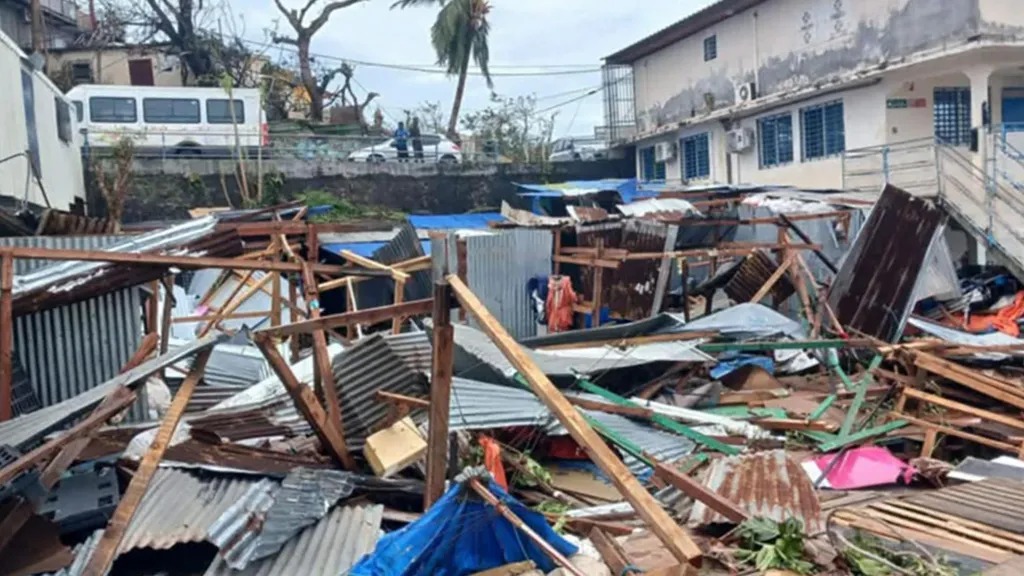
Cyclone Chido Hits Mayotte: Worst Storm in 90 Years
Cyclone Chido has left Mayotte in devastation, marking the worst storm to hit the French Indian Ocean territory in nearly a century. With wind speeds exceeding 225km/h (140mph), the storm has flattened shantytowns and disrupted basic infrastructure, leaving residents grappling with a “nuclear war-like” aftermath.
Rising Death Toll and Struggles for Survival
- Death toll: 20 confirmed, but local officials warn it may rise to thousands due to undocumented migrants and unaccounted communities.
- Basic needs crisis: Many in the capital, Mamoudzou, report shortages of food and water.
John Balloz, a resident of Mamoudzou, shared his harrowing experience:
“I could see the end coming for me. Everything is damaged—electric pylons, the water treatment plant. People are waiting for help.”
Challenges for Emergency Relief Efforts
The cyclone has severely hindered emergency operations:
- Infrastructure damage: Downed power lines, impassable roads, and destroyed slums.
- Aid arrival: Limited supplies, including tarpaulins for shelters, have reached survivors, with 110 French soldiers deployed and 160 more en route.
- Coordination hub: Relief efforts are being managed from Reunion, another French overseas territory.
French Interior Minister Bruno Retailleau, after arriving in Mayotte, stated:
“Days and days will be needed to ascertain the human losses.”
A Devastating Impact on Vulnerable Communities
Mayotte’s impoverished communities, including over 100,000 undocumented migrants, have been hardest hit:
- Many live in sheet-metal shacks that were completely destroyed.
- The Muslim tradition of burying the dead within 24 hours complicates accurate death toll documentation.
Cyclone Chido’s Path: From Mayotte to Mozambique
Cyclone Chido also struck Mozambique, bringing flash floods and structural damage:
- Provinces affected: Nampula and Cabo Delgado experienced power outages and damage to homes, schools, and healthcare facilities.
- Deaths: Three fatalities reported in Mozambique.
UNICEF spokesperson Guy Taylor highlighted concerns about the spread of cholera and malaria due to lack of clean water and sanitation.
Climate Change’s Role in Storm Intensity
Cyclone Chido’s devastation underscores the growing impact of climate change on storm strength. According to the BBC Weather Centre, while climate change may not increase the frequency of cyclones, it intensifies their strength due to warming oceans.
Meteorologist Sarah Keith-Lucas explained:
“Chido strengthened over the ocean but avoided weakening by avoiding Madagascar’s rugged terrain.”
Internal Links for More Insights
Conclusion: A Call for Global Aid
Mayotte and Mozambique now face a monumental task of rebuilding after Cyclone Chido’s unprecedented destruction. Immediate relief efforts are essential to prevent further loss of life, especially in vulnerable communities.
As climate change continues to shape the intensity of such storms, international attention and action remain critical to safeguard communities worldwide.
Call to Action:
Stay updated on Cyclone Chido’s aftermath and global relief efforts on Disaster Relief.





